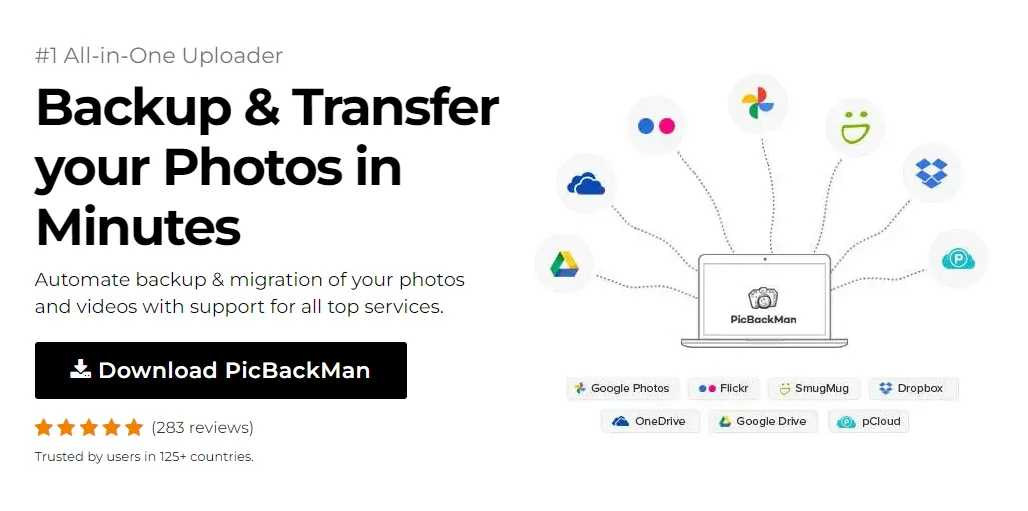
Why is it the #1 bulk uploader?
- Insanely fast!
- Maintains folder structure.
- 100% automated upload.
- Supports RAW files.
- Privacy default.
How can you get started?
Download PicBackMan and start free, then upgrade to annual or lifetime plan as per your needs. Join 100,000+ users who trust PicBackMan for keeping their precious memories safe in multiple online accounts.
“Your pictures are scattered. PicBackMan helps you bring order to your digital memories.”
Does OneDrive Slow Down Your Computer?


In today's digital age, cloud storage solutions like Microsoft OneDrive have become an integral part of our daily lives, allowing us to store, sync, and access our files from anywhere. However, some users have reported that OneDrive may be causing their computers to slow down. This article aims to shed light on the potential reasons behind this issue and provide practical solutions to help you optimize OneDrive's performance on your computer.
OneDrive: An Overview
OneDrive is Microsoft's cloud storage service that allows users to store, sync, and share files across multiple devices. It offers a convenient way to keep your files accessible and up-to-date, regardless of the device you're using. However, like any software, OneDrive can sometimes impact your computer's performance, especially if you're not using it optimally.
Why Does OneDrive Slow Down Your Computer?
There are several potential reasons why OneDrive may be causing your computer to slow down. Understanding these reasons can help you take the necessary steps to resolve the issue.
Syncing and Uploading Files
One of the primary functions of OneDrive is to sync files between your computer and the cloud. However, this process can be resource-intensive, especially if you're syncing large files or multiple files simultaneously. When OneDrive is syncing or uploading files, it consumes system resources like CPU, RAM, and network bandwidth, which can lead to slower performance on your computer.
Background Processes
OneDrive runs various background processes to ensure seamless file syncing and other operations. These processes can consume system resources, particularly if you have a large number of files or folders synced with OneDrive. Additionally, if these processes encounter issues or conflicts, they can further contribute to performance degradation.
Outdated Software or Hardware
If you're running an outdated version of OneDrive or using older hardware, it may struggle to keep up with the demands of the service. Older computers or operating systems may not have the necessary resources to handle OneDrive's intensive syncing and file management operations efficiently.
Optimizing OneDrive for Better Performance
While OneDrive can sometimes slow down your computer, there are several steps you can take to optimize its performance and ensure a smoother experience.
Pause Syncing
If you're experiencing performance issues while working on resource-intensive tasks, you can temporarily pause OneDrive's syncing process. This will free up system resources and allow your computer to focus on the task at hand. Once you've completed your work, you can resume syncing to ensure your files are up-to-date.
Selective Syncing
Instead of syncing your entire OneDrive folder, you can choose to sync only the files and folders you need on your computer. This will reduce the strain on your system resources and potentially improve performance. You can access the remaining files from the cloud when needed.
Exclude Specific File Types
OneDrive allows you to exclude specific file types from syncing, such as large media files or temporary files. By excluding unnecessary files, you can reduce the load on your system and improve overall performance.
Update OneDrive and Other Software
Ensure that you're running the latest version of OneDrive and other related software, such as your operating system and antivirus software. Outdated software can cause compatibility issues and performance problems. Regularly updating your software can help resolve these issues and ensure optimal performance.
Check System Resources
If your computer is running low on system resources, such as RAM or available storage space, it can impact OneDrive's performance. Consider upgrading your hardware or freeing up space by removing unnecessary files and programs to improve overall system performance.
Striking a Balance
While OneDrive offers numerous benefits in terms of file accessibility and collaboration, it's essential to strike a balance between its features and your computer's performance. By following the optimization tips mentioned above, you can ensure that OneDrive runs smoothly without compromising your productivity.
Quick Tip to ensure your videos never go missing
Videos are precious memories and all of us never want to ever lose them to hard disk crashes or missing drives. PicBackMan is the easiest and simplest way to keep your videos safely backed up in one or more online accounts. Simply Download PicBackMan (it's free!), register your account, connect to your online store and tell PicBackMan where your videos are - PicBackMan does the rest, automatically. It bulk uploads all videos and keeps looking for new ones and uploads those too. You don't have to ever touch it.
FAQs
How do I stop OneDrive from taking over my computer?
To prevent OneDrive from consuming excessive system resources, you can try the following steps: pause syncing when not needed, enable selective syncing to sync only necessary files, exclude large or unnecessary file types from syncing, and ensure that you're running the latest version of OneDrive and your operating system.
Why does OneDrive take up so much CPU?
OneDrive may consume a significant amount of CPU resources when syncing or uploading files, especially if you're syncing large files or multiple files simultaneously. Additionally, if there are any background processes or conflicts related to OneDrive, they can further contribute to high CPU usage.
What happens if I uninstall OneDrive?
If you uninstall OneDrive, you will no longer have access to the files stored in your OneDrive cloud storage from that computer. However, your files will remain stored in the cloud, and you can reinstall OneDrive later to regain access to them.
Why has OneDrive taken over my computer?
OneDrive may appear to have "taken over" your computer if it is consuming excessive system resources due to syncing or uploading large amounts of data, running background processes, or encountering conflicts or issues. This can cause your computer to slow down or become unresponsive.
Should you turn off OneDrive?
Turning off OneDrive completely may not be necessary in most cases. Instead, consider optimizing its performance by pausing syncing when not needed, enabling selective syncing, or excluding unnecessary file types from syncing. However, if OneDrive continues to cause significant performance issues, you may choose to temporarily disable or uninstall it.
Should I keep OneDrive on my computer?
Whether or not to keep OneDrive on your computer depends on your usage and preferences. If you find the cloud storage and file syncing features of OneDrive useful and can manage its impact on your computer's performance, then keeping it installed can be beneficial. However, if you don't use OneDrive frequently or if it consistently causes performance issues, you may consider uninstalling it.
Conclusion
OneDrive is a powerful tool for managing and accessing your files across multiple devices. However, if not configured properly, it can potentially slow down your computer's performance. By understanding the reasons behind this issue and implementing the optimization strategies outlined in this article, you can enjoy the convenience of OneDrive without sacrificing your computer's speed and responsiveness.
Remember, regular software updates, selective syncing, and monitoring system resources can go a long way in ensuring a seamless OneDrive experience. If you continue to experience persistent performance issues, it's advisable to seek assistance from Microsoft's support or consult with a professional IT expert.






